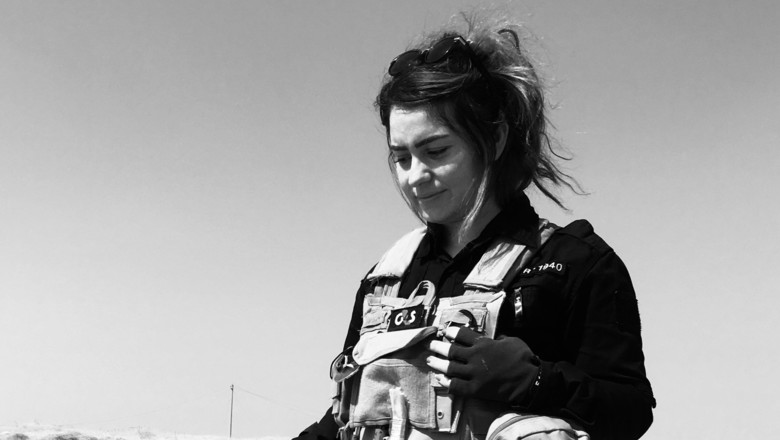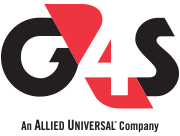
Clearing Isis
explosives from my home: Noura's story

“Join the Caliphate or you will be punished. We knew we had to escape that night or face terrible consequences. We ran to the mountains each with a knife… we would have chosen death over life under them”.
It’s March 2019, and Noura stands in what remains of the home she fled five years ago when her village, Hatimiye in Sinjar, Northern Iraq, was overrun by ISIS. The house, much like the rest of Sinjar, is barely recognisable from the place Noura grew up in before the ISIS occupation. A deep tunnel has been dug into her living room - a place where ISIS soldiers sheltered during coalition airstrikes - and all around Sinjar lies the rubble of shrines, schools and other buildings destroyed by ISIS and the fighting that ensued.
For 22 year-old Noura, this is a place of treasured memories and deep sadness, but she is part of a brave and highly skilled G4S team of Yazidi and Muslim women and men, directed and managed by the United Nations Mine Action Service (UNMAS) and Al Saqar, who are determined, piece by piece, to return Sinjar to the place it once was.

The occupation of Sinjar ended in 2017 when ISIS soldiers were driven out by Kurdish and coalition forces. Thousands of Yazidi men were systematically executed by ISIS soldiers at the start of the occupation in 2014, and many women were captured and sold as wives to the fighters in Syria and other ISIS strongholds. Some chose suicide over the brutal regime, while others are still missing with little hope of ever finding out what happened to them. Mass graves are still being uncovered across Sinjar.
Those, like Noura, who were able to escape to the mountains were left with barely any possessions. Even now, very few have been able to return to their homes because of the danger of improvised explosive devices (IEDs) that ISIS secreted in homes, schools and other community areas as a final act of rebellion before they retreated. It is too dangerous for people to return and rebuild, and this is where Noura and her fellow High Risk Search and IED Disposal Operators come in - starting with her own home.
“When I was told we would be returning to Hatimiye I was so excited” said Noura. “I have so many good memories of growing up here, and also sad ones about what happened. Myself and the rest of the team, some also from here, want to show this has made us stronger, with an opportunity to make new memories for us and our families”.
Noura is part of a G4S and UNMAS team of 32 Yazidis and 6 Muslims - including 21 women - involved in the clearance project. Some of the team members, unable to return to their homes, still live amongst the thousands of people in Internally Displaced Person Camps and the project provides an important source of income to them and their families.

The whole team undertook a demanding training course in which they learnt how IEDs are made, where and how they are placed, how to use specialist search equipment and how to recognise other explosive remnants of war (ERW).
“I am so pleased to now be using my training to clear explosive dangers from the infrastructure of my own village, Hatimiye. There was lots of information to take in and specialist equipment to learn to use, but the most important thing to remember was that our eyes and brain are the most vital piece of search equipment.”
Risk education is also an important part of the team’s role. Noura and her colleagues travel around the Sinjar district and visit schools, hospitals and other public areas to highlight the dangers of explosive hazards and give advice to the community about what to do if a suspected IED is discovered.
The clearance process provides plenty of personal reminders for the team of their life before the occupation. Many of the team also grew up and went to school in Hatimiye, and one of Noura’s colleagues, Nashwan, even found his old school report amongst the debris during the operation to clear the school.

“Clearing my old school made me very proud” said Noura. “To know that perhaps my children could be educated there one day made me very happy.”
“Yazidis are strong and resilient people. We will never forget what we’ve been through, but we are now looking to the future in Sinjar. I am proud to be part of this important team and work alongside my brave colleagues to clear the way to safely rebuild our towns and villages. People are now keen to return knowing that G4S and UNMAS are here removing the dangerous hazards and reclaiming Hatimiye."
